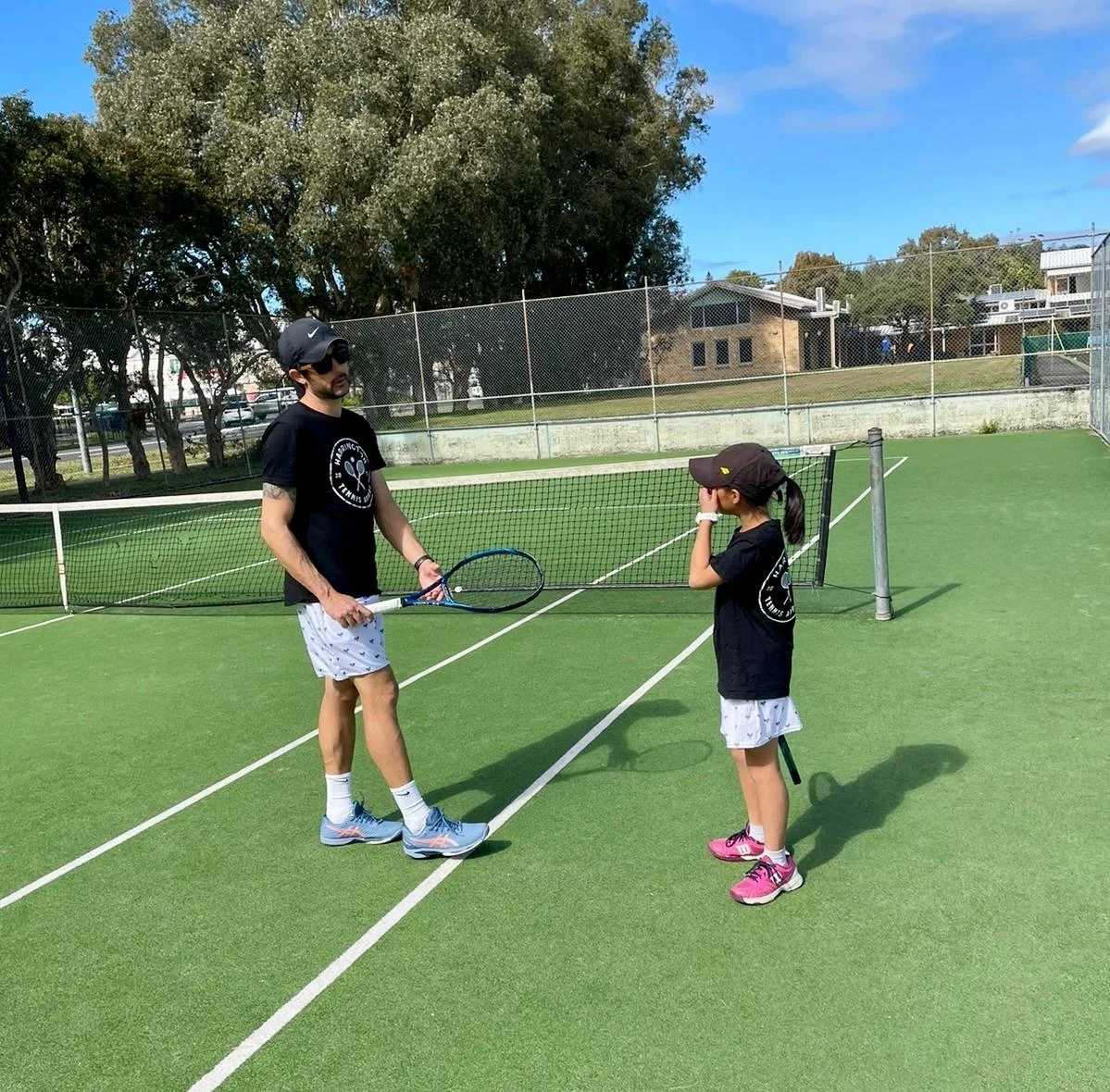The Do’s and Don’ts for Parents Watching Their Child Compete in a Tennis Match
As a tennis parent myself, I know firsthand how challenging it can be to watch your child compete. I’ve made all the classic mistakes—coaching from the sidelines, getting too emotionally invested in the outcome, and unintentionally adding pressure. It’s a learning process, and I’m still figuring it out.
If you’re a parent watching your child compete in tennis, you want to be as supportive as possible while avoiding actions that might negatively impact their experience. Here are some key do’s and don’ts to help you navigate this journey.
What Parents SHOULD Do
1. Be a Positive Presence
Your child will look to you for reassurance, whether they win or lose. A smile, a thumbs-up, or simple encouragement can help them stay confident and composed on the court.
2. Applaud Good Tennis—From Both Players
Recognizing great points, even from your child’s opponent, promotes sportsmanship and sets a great example for your child. It also helps foster a respectful tennis environment.
3. Let the Coach Do the Coaching
During matches, your role should be that of a supporter, not a coach. Save tactical advice for after the match and let your child’s coach handle the in-game strategy.
4. Focus on Effort Over Outcome
Winning is great, but effort, resilience, and learning from mistakes are more important for long-term development. Praise your child for working hard and staying positive, regardless of the score.
5. Respect Officials and Opponents
It can be frustrating if you think a call was wrong, but arguing with officials or criticizing opponents sets a poor example. Encourage fair play and respect for the game.
6. Help Your Child Manage Their Emotions
Tennis can be an emotional rollercoaster. If your child is frustrated, remind them to take deep breaths and refocus. Your calm demeanor can help them reset mentally.
7. Encourage Independence
Your child needs to learn how to handle challenges on their own. Give them space to problem-solve and figure things out without stepping in.
⸻
What Parents SHOULD NOT Do
1. Don’t Coach from the Sidelines
Giving instructions like “Hit to their backhand!” or “Move your feet!” disrupts your child’s concentration and may even be against tournament rules. Let them play their own game.
2. Don’t Show Negative Body Language
Eye rolls, sighs, shaking your head—kids pick up on these cues, and it can add unnecessary stress. Stay supportive, even when things aren’t going well.
3. Don’t Criticize or Blame
Avoid comments like “You should have won that match” or “Why did you miss that easy shot?” Criticism after a tough loss can hurt confidence and enjoyment of the game.
4. Don’t Compare Your Child to Others
Saying things like “You should be winning against this player” or “Your friend is ranked higher than you” can create pressure and take away from their individual progress.
5. Don’t Get Involved in Disputes
If there’s a scoring disagreement, let the players or officials handle it. Stepping in can make things worse and teach your child to rely on you instead of solving problems themselves.
6. Don’t Use Rewards or Punishments for Match Results
Tennis is about growth, not just winning. Tying match results to rewards (like buying a treat for winning) or punishments (like canceling plans for losing) can create an unhealthy mindset.
7. Don’t Make the Match Bigger Than It Is
At the end of the day, it’s just a tennis match. Whether your child wins or loses, remind them that their value isn’t tied to the outcome of a single match. Support their love for the game, and they’ll develop into not just better players but also better people.
⸻
Final Thoughts
I know how hard it is to stay in the “perfect parent” role—I still catch myself making mistakes. But what’s important is that we, as parents, keep learning and improving, just like our kids do in their matches.
By focusing on the right behaviors and avoiding unnecessary pressure, we can help our children develop confidence, resilience, and a lifelong love for the game. So let’s enjoy the journey, cheer them on, and most importantly—let them have fun!











